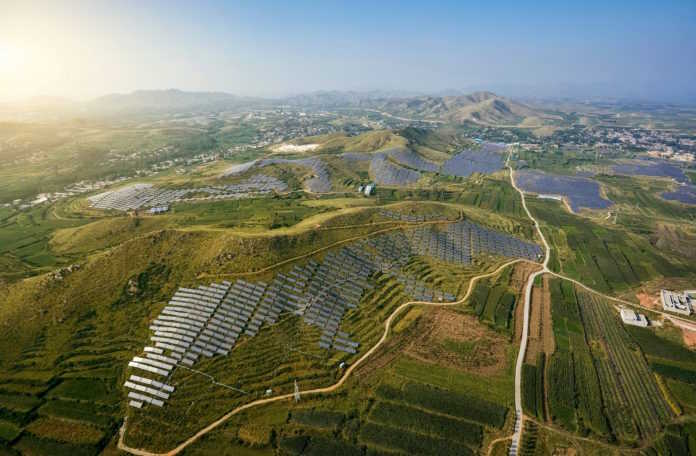08 May 2023 As the world decarbonises its energy system, electricity will be the backbone. There is an accelerated shift from fossil-based to renewable power generation, with growing electrification of the transportation, industrial and building sectors.
To manage this, digital and energy platforms are needed for the enormous power system energy transition challenges of increased complexity and additional capacity requirements. These platforms will enable greater grid resilience and help manage the shift to a more complex power generation landscape by matching fluctuations in power supply and demand dynamically.
Cybersecurity
A significant aspect of resilience is in cybersecurity. The world needs a cybersecure ecosystem for a resilient electric future. Energy is among the top three target sectors for cyberattacks globally. As energy grids become more resilient through the application of digitalisation, attention must be paid to the design and implementation of cybersecurity.
Utilities in South Africa are becoming increasingly aware of the advantages of outage management software solutions to manage the supply to their customer base. Some municipalities are considering deploying Supervisory Control and Data Acquisition (SCADA) and Distribution Management Systems (DMS) to better manage their networks.
Self-Generation
Through changes in regulation and technology, large power users are now able to generate and use their own electrical energy. As this self-generation becomes more prevalent, users will start to trade power with each other, with the grid being the trading platform for such exchanges. Sophisticated software solutions are available to manage such trading, allowing real-time exchange of power between users and settlement of the resultant commercial transactions.
With the rapid deployment of self-generation underway, it is easier and cheaper to save a kWh of demand than build generation to cater for that demand. Improved energy efficiency is essential if the world is to decarbonise successfully. The digital solutions available today support the implementation of energy efficiency, both through the identification of where energy is being used and the actions needed to use it more efficiently.
Solutions such as low-loss transformers are available that enable better use of electrical energy. Even small electrical losses in transformers add up over the lifetime, resulting in significant carbon emissions and wasted power that could be saved by transformers with enhanced energy efficiency. Plus, transformers contain large volumes of material that, through intelligent designs and use of material, can be made more sustainable.
Grid Connection Solutions
As the power generation landscape evolves in South Africa, the demand for grid connection solutions is increasing rapidly. It has taken many decades to build the power grid that exists today. There is not enough time to meet the demand for new offtake and grid integration solutions unless new solutions such as prefabricated substations are considered to speed up the deployment of such grid connections.
Smart grid solutions consist of three basic components: The devices to collect data and control the grid, the communications network that connects these devices together and the software solutions that enable management of the grid.
The Internet of Things (IoT) has enabled smaller, cheaper devices that can be deployed more easily and deeper into power networks. In the home, the smart meter can be the hub, enabling find control of electricity demand and outage management.
Decarbonisation is transforming our energy system, driving an accelerated shift from fossil-based to renewable power generation and electrification of the transportation, industry and buildings sectors. This is creating the need to optimise energy both locally and system-wide, leading to a complex ‘system of systems’ that must be integrated and managed.
Digitalisation is the only way to manage this complexity, simplifying the contextualisation of massive amounts of data. However, this must be balanced with managing and optimising today’s operations. Hitachi Energy can help you navigate this increasingly complex energy landscape. We have the right combination of connected products, software-based solutions and digitally enabled services to solve real-world challenges and add real value.
About Hitachi Energy
Hitachi Energy is a global technology leader that is advancing a sustainable energy future for all. We serve customers in the utility, industry and infrastructure sectors with innovative solutions and services across the value chain. Together with customers and partners, we pioneer technologies and enable the digital transformation required to accelerate the energy transition towards a carbon-neutral future. We are advancing the world’s energy system to become more sustainable, flexible and secure whilst balancing social, environmental and economic value. Hitachi Energy has a proven track record and unparalleled installed base in more than 140 countries. Headquartered in Switzerland, we employ around 40,000 people in 90 countries and generate business volumes of approximately $10 billion USD.
https://www.hitachienergy.com
https://www.linkedin.com/company/hitachienergy
https://twitter.com/HitachiEnergy
By Malvin Naicker, MD, Hitachi Energy, Sub-Saharan Africa
About Hitachi, Ltd.
Hitachi drives Social Innovation Business, creating a sustainable society with data and technology. We will solve customers’ and society’s challenges with Lumada solutions leveraging IT, OT (Operational Technology) and products, under the business structure of Digital Systems & Services, Green Energy & Mobility, Connective Industries and Automotive Systems. Driven by green, digital, and innovation, we aim for growth through collaboration with our customers. The company’s consolidated revenues for fiscal year 2021 (ended March 31, 2022) totaled 10,264.6 billion yen ($84,136 million USD), with 853 consolidated subsidiaries and approximately 370,000 employees worldwide. For more information on Hitachi, please visit the company’s website at https://www.hitachi.com.
Media Contact:
Lerato Nkosi
Country Communications Manager, South and Southern Africa
Hitachi Energy Ltd.
+27 77 3644 5464












